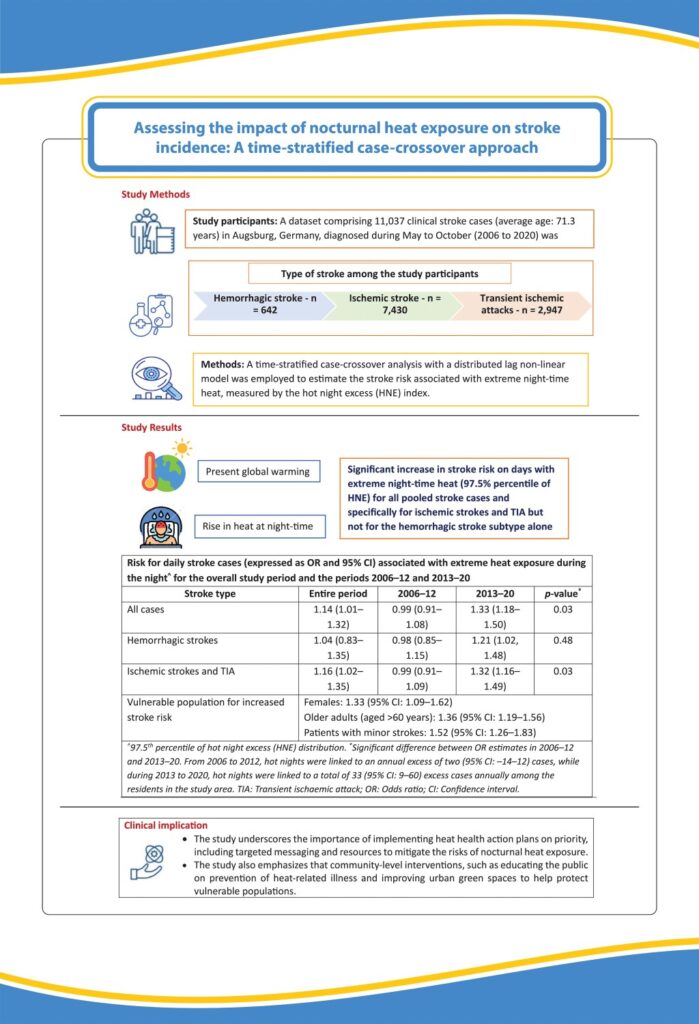
Stroke significantly impacts global health, being the third leading cause of premature death and years lost due to illness and disability, worldwide. Identifying the risk factors is crucial for developing public health interventions. While the association of stroke with hypertension, diabetes, hypercholesterolemia, smoking, and alcohol consumption is well known, the influence of climate change on stroke risk is a subject of current research. Recent research has implicated the role of rise in minimum temperatures as an important risk factor for stroke. Nighttime heat exposure can disrupt sleep and circadian thermoregulation, potentially increasing stroke risk. The urban heat island effect exacerbates night-time heat exposure, and it is estimated that night-time warming will surpass daytime warming globally by this century.
A study conducted by Cheng, et al., recently published in the “European Heart Journal” explored the association between nocturnal heat exposure and the occurrence of stroke using a 15-year time-stratified case-crossover approach. This study utilized a comprehensive dataset of all stroke cases in Augsburg, Germany. Additionally, subgroup analyses by stroke subtype, age group, sex, and stroke severity were conducted to identify subpopulations with increased susceptibility to night-time heat. It was noted that a rise in night-time temperature resulted in an increase in stroke risk, with older population, females, and those with mild stroke symptoms being more vulnerable (see graphic).

(Source: He C, Breitner S, Zhang S, Huber V, Naumann M, Traidl-Hoffmann C, Hammel G, Peters A, Ertl M, Schneider A. Nocturnal heat exposure and stroke risk. Eur Heart J. May 21, 2024. Doi:10.1093/eurheartj/ehae277)
